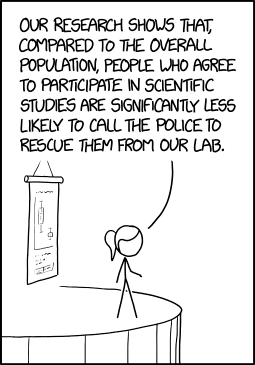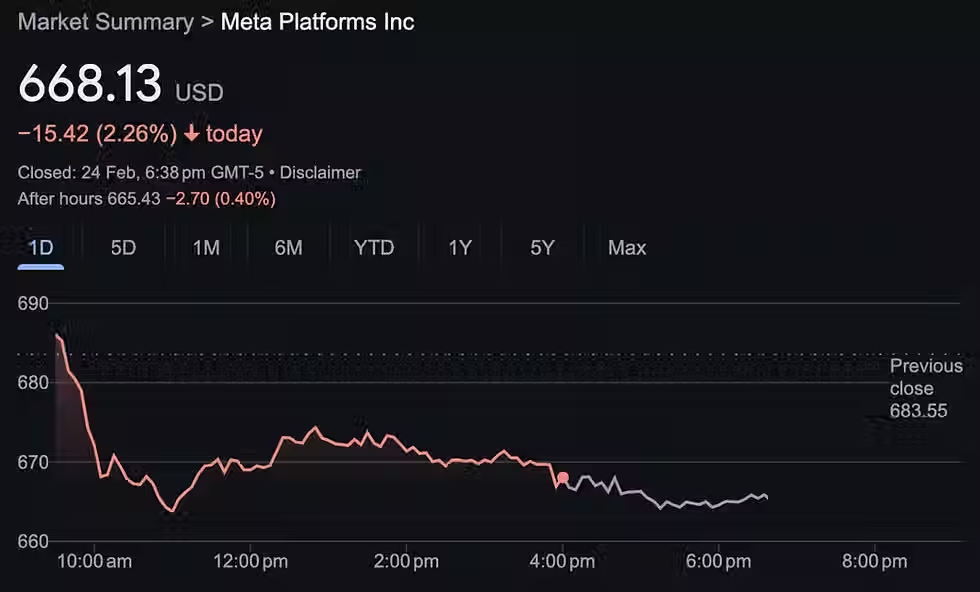$1 million by 30 - Is it Luck or Skill?
- Buffett Online School

- Sep 6, 2023
- 7 min read
Updated: Sep 7, 2023

Do you think it takes more luck or skill to amass millions? While many believe that skill is the key to financial success, what if I told you that luck can play an even more significant role?
We recently had the privilege of interviewing Max Koh, a seasoned investor who achieved millionaire status by the age of 30. Max is not only a successful investor but also a thriving entrepreneur, who has shared the stage with renowned business leaders like Richard Branson.
At Buffett Online School, we also believe in investing in great companies you understand and utilizing Free Investing Resources to help you start your financial freedom and investment journey is one of the best ways to learn.
Luck or Skill?
Let’s look into how luck or skill is involved in the success equation. Do we just focus on skills alone? Or do we employ attracting luck into our lives?

Pivotal Skills to the Success Equation
Max shared his expertise and how he excels in multiple areas simultaneously, including sales, public speaking, and investing.
Max's revolves around a talent stack—a combination of key skills that set him apart. Over the past 1.5 years, he has engaged in various side hustles, allowing him to cultivate proficiency in different domains.
He attributed his success to three pivotal skill sets.
The first is adept copywriting, enabling him to persuade online buyers through effective written content.
The second is communicating and presenting well, which establishes credibility and trust, especially in the digital age.
Lastly, he highlights his capacity to employ the income earned from these skills to make astute investments.
This multifaceted skill set development is influenced by Scott Adams' concept of a talent stack, where proficiency in several skills, even if not mastery, creates a unique blend. Max emphasizes that his niche position stems from this blend, combining marketing, sales, public speaking, and investing.
Max also stressed the significance of recognizing patterns, particularly in the initial stages of learning. He provides examples from his trading and investment journey, highlighting the importance of broadening horizons to understand the bigger picture before focusing.
He also shares the most influential skill among the three mentioned earlier. Max suggests that effective communication, encompassing copywriting, presenting, and persuasion, forms the bedrock of his success.
He mentions a somewhat unexpected aspect that played a crucial role in his learning journey: his systematic approach to note-taking. This approach involves extracting and summarizing content from various sources, such as books and courses, into a comprehensive repository.
This meticulous note-taking process has enabled him to apply learned concepts effectively and expedite skill acquisition.
Max's proficiency across various fields is attributed to a talent stack combining copywriting, communication, presentation, and investing.
We can also say that his success is rooted in recognizing patterns during learning and a structured approach to note-taking. This approach has allowed him to extract and apply knowledge efficiently, leading to his multifaceted expertise.
Books to Enhance Skills
Max also shared that one of the things he does to improve his skills is reading books. He always does note-taking while reading books.
The book, titled "Build Your Second Brain," authored by Tiago Forte. Within the pages of this book, the concept of achieving a more structured approach to note-taking is explored.

Upon reading the book, he realized that he had been practicing a less systematic form of this approach. The central idea here is that your capacity to acquire knowledge and effectively apply it—since the application is the cornerstone of yielding results—hinges on your ability to extract pertinent information from courses, books, or videos.
Consequently, the structured note-taking method you employ translates into your aptitude for executing the skills you've acquired.
Utilizing tools like the Amazon Kindle or iPad, he meticulously highlights valuable content spanning various topics such as investing, marketing, and even self-help. This process includes a secondary layer of summarization, wherein he revisits his initial highlights to distill a concise summary—reflective of a practice elucidated in the aforementioned book.
Ultimately, the compiled information is stored in an extensive Google document.
Presently, his repository encompasses nearly 500 pages encompassing diverse subjects, serving as a reservoir of applicable knowledge. This arrangement significantly enhances his ability to promptly apply specific skill sets when needed.

This perspective underscores the instrumental role of one's note-taking regimen in hastening the mastery of skills acquired through reading and learning. His affinity for this method was deeply impacted by the book "Build Your Second Brain," which elevated his pre-existing approach to a more structured level.

Dimensions of Luck and Making it Intentional
Increasing luck involves understanding the different dimensions of luck and strategizing to make luck more intentional.
Two significant aspects contribute to this approach.
1. It's important to recognize that luck plays a considerable role in our lives, often influencing outcomes more than we realize. This realization challenges the assumption that everything is solely a result of our efforts.
Instead, luck can be categorized into three types:
Blind luck - means you walk on the street, and then somehow you see a lottery ticket, and you win $8 million from it. It cannot be recreated and cannot be engineered. It's just blind
Luck by hustle - these people go out there and attend many networking events. They do so many different things, and the amount of dust it stirs up. They somehow get lucky because of luck, true effort, or hustle luck.
Luck by reputation - This is like a deep sea diver, and he’s the only guy on planet earth who can dive deep below the ocean for thousands of feet. Others will say the diver got lucky, but his reputation and skill as a deep sea diver and the only one in the world allowed him to get lucky.
To enhance luck intentionally, one can engage in activities that connect different dots and create more opportunities. This involves trying out various projects or ventures and maintaining a flow of multiple bets.
However, the key is a systematic approach when deciding which bets to pursue. A set of criteria helps determine the viability of a venture, such as whether it can be taken to market within a short timeframe, ideally two to three weeks.
This prevents the trap of spending excessive time on an idea that may not prove fruitful in the long run. By taking calculated risks and maintaining a dynamic portfolio of projects, individuals can increase their chances of encountering lucky breaks and serendipitous moments.
2. Leveraging the power of social media and networking is another thing that can amplify luck by expanding one's reach and potential opportunities. Building an online presence and engaging with others in this digital age can lead to unexpected connections and collaborations, fostering a more favorable environment for fortunate occurrences.
Necessity of Engaging in Multiple Ventures
The first aspect Max highlights pertains to the necessity of engaging in multiple ventures, yet many individuals mishandle this approach. Their approach is often based on a simple directive, such as "diversify your bets," without considering the specific criteria for determining the quantity or nature of these endeavors.
Max shares his criteria that aid in determining whether he should undertake a particular venture. This mindset draws parallels to the role of venture capitalists (VCs) in the investment world. A typical VC possesses virtually unlimited financial resources due to its ability to raise funds from limited partners (LPs) continuously.
Consequently, they can explore numerous projects and invest in various opportunities, ranging from the next Airbnb to innovative startups.
In contrast, the average person's time is limited to 24 hours a day. Thus, akin to a VC managing their funds, he must manage his time resourcefully. To effectively accomplish this, he adhered to a simple principle: Commit to attempting two to three new initiatives every quarter, investing his time, energy, and emotional effort.
He also ensures that a minimum of three to four projects remain in progress at all times. This strategy allows for developing of multiple income streams and offers a heightened sense of security.
He also employs a series of self-inquiries. Firstly, he considers whether the project can be introduced to the market within a short span of two to three weeks. This rapid market entry is crucial to prevent a common mistake in which individuals invest six months into a venture that may prove unviable.

Additionally, he evaluates the potential for repurposing the project in case of failure. This approach minimizes the risk of wasted effort.
To exemplify this approach, he shares a recent case study from earlier this year. I contemplated launching a sales course targeting one-on-one selling skills. However, he hesitated to allocate three weeks for crafting course content without a guaranteed sales outcome.
The reluctance stemmed from the self-awareness that his passion for this endeavor might not translate into a successful venture. His aversion to committing significant time without financial certainty drove my decision-making process.
Consequently, he adopted an alternative approach. He offered personalized coaching to a friend who was skilled in fund management but lacked sales proficiency. He proposed teaching him the art of raising funds using consultative selling techniques during a full-day session in exchange for a fee of $2,000.
This arrangement not only generated content but also resolved the initial concern about dedicating time to content creation.
This example underscores the significance of reusability in projects and highlights the underlying philosophy of effectively allocating time. Before initiating any venture, he applies a vital criterion: Can the project be repurposed or reused if it doesn't yield the desired outcome?
This approach ensures that his time is invested thoughtfully, emphasizing sustainability and adaptability. This adherence to criteria fosters a systematic approach to evaluating and selecting opportunities, mirroring the strategic discernment employed by successful venture capitalists.

Investing Methodology
The investing methodology is characterized by two distinct portfolios: a "Buffet-style" and a "venture capitalist" portfolio.
The former emphasizes consistent returns on invested capital, stability in company branding, and meticulous valuation assessment. The latter comprises more speculative investments in emerging, growth-focused businesses.
The guiding principle is a diversified strategy encompassing traditional, resilient entities and dynamic, growth-oriented ventures.
Max discusses that his life motto revolves around two concepts. First, an aspiration to be a teacher, facilitating others' learning journeys and leaving a lasting impact.
Second, an affinity for taking calculated bets across various domains to enhance exposure to favorable outcomes.
The value of sharing experiences and not fearing judgment on social media is underscored with the realization that judgment holds little significance in the grander context.
Overall, the keys to cultivating luck are rooted in skill, hustle, reputation, and calculated risk-taking.
Watch the full video on Chloe Lin - Arigato Investor’s YouTube channel!
Join Our Free 2-Day BOS Value Investing MBA
At the Buffett Online School, we believe in learning the right investing mindset and system, so we can start cultivating emotional detachment and grow our wealth safely and substantially in the long run.
Our next 2-day BOS MBA Value Investing Online Bootcamp is happening soon! We will teach you how to use Warren Buffett's proven investing method to maximize your portfolio.
Remember, you have the choice to cultivate the right investing mindset and unlock your potential to build wealth through intelligent investing. Together, we can create a network of educated investors who make informed decisions and contribute to their financial well-being!
In the meantime, feel free to check out some of our blog posts to continue learning. You can also join our BOS Telegram channel for more investing insights!





Comments